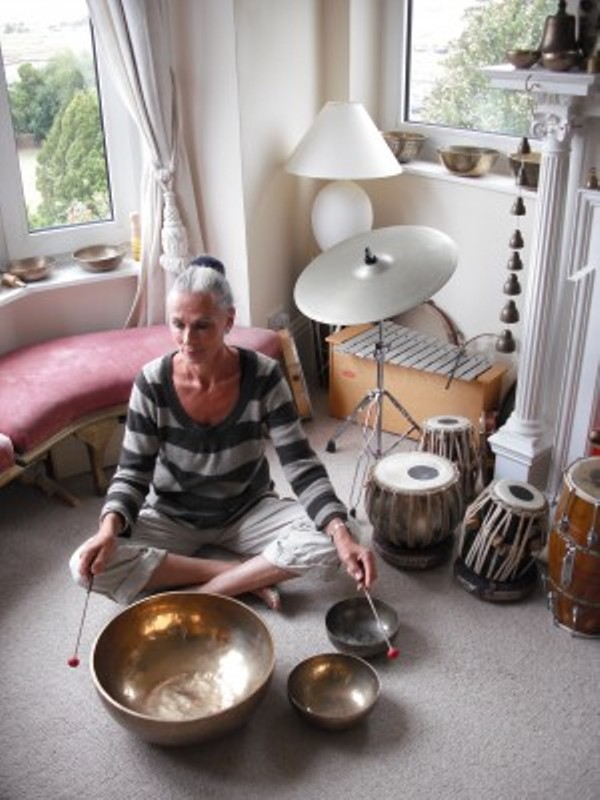“After silence, that which comes nearest to expressing the inexpressible is music” – Aldous Huxley.
Music therapy has been proven to open a new line of communication for those who suffer the frustrations of muteness, autism, and dementia as well as the suppression of emotions that is a demon to us all. The positive effect of music therapy can be seen in case studies of treatment for a wide range of conditions including trauma and even cancer. But this therapy is for everyone, in fact it is a good way of simply letting off steam for people who are “just pissed off” says Liz Butt, a Rye based music therapist.
I caught up with Liz recently to talk about her intriguing therapy sessions. We meet at her central Rye home, and sit for our chat in her treatment room, a glowing, sunlit space proudly overlooking the vast landscape towards Camber. A piano, huge gongs, xylophones and bells fill the room. Liz is a beacon of calm in herself and reminds me of a ballet dancer. She is well spoken, slender, unusually tall and always in bright leggings and a scrunchie. I’m pretty sure I’ve seen her in Juju Jellies too, so she’s obviously got her finger on the fashionable footwear pulse.
My first question after reading one of her leaflets was “What is a gong bath?” Liz elegantly glides around the room, hitting the instruments, filling the room with an intense sound and vibration that seems to go through you. During a session, a client will be “bathed” in the sound, which creates a meditative effect and, strangely, has a tendency to bring suppressed feelings to the surface and enable the client to discuss these feelings. Sudden outbursts of emotion are common, as the gong bath has literally an emotionally cleansing effect.
Liz explains that the physical act of simply hitting or even bashing the gongs is cathartic, a release of frustration, and the gongs are “pretty much impossible to break”. Clients can lose themselves in creating as much noise as they can, in a kind of secondary scream through the instruments. A great experience for anyone feeling like they sometimes don’t have a voice. On the calmer side of things Liz works together with Tobias Kaye, who one day decided to stretch harp strings across a handmade wooden bowl. The result was the Sounding Bowl, an instrument which requires no skill to play but makes a lovely sound. Liz and Tobias work within the NHS, at hospices and in hospitals, bringing their sounding bowl workshops to Alzheimer’s patients and the physically uncoordinated, who are able to make music by simply running their hands over the strings, which the patients enjoy greatly.
Liz also campaigns for more funding for music therapy. Currently the NHS does refer patients but, with government cuts, there could be less spent on this and other alternative therapies. Yet music therapy works, aiding motor skills, mood, cognitive function and social skills. Go along to one of Liz’s sessions or upcoming events on July 19 or July 26 (see What’s On) and let us know what you think by writing to Info@ryenews.org.uk. Liz also runs free taster sessions details of which can be found at: www.themusicwell.org.uk.



